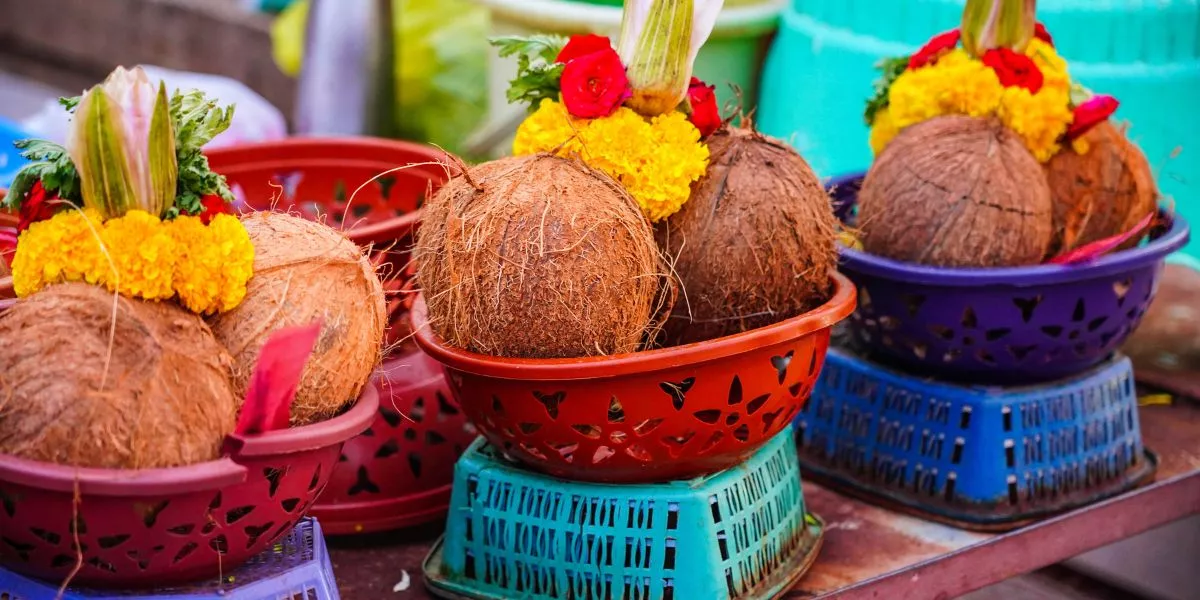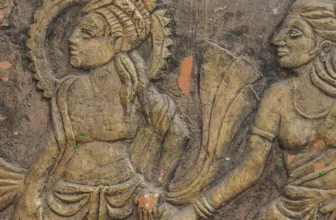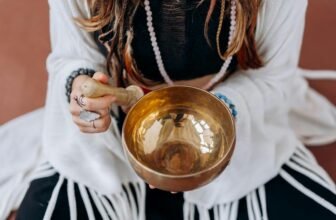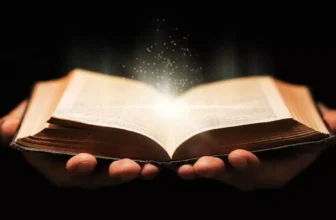
In a traditional Hindu ritual, the essential pooja items hold significant spiritual value and serve as conduits for connecting with higher realms. Each item, from the sacred symbols to the offerings and ritual tools, plays a crucial role in invoking blessings and fostering a sacred atmosphere. But why are these items specifically chosen, and how do they contribute to the spiritual essence of the ceremony? Let's explore the intricate significance behind these essential elements that enrich the ritual experience and deepen one's connection with the divine.
Sacred Symbols
When setting up for a traditional Hindu ritual, ensure you have the essential sacred symbols ready. The sacred symbols play a crucial role in creating a spiritually charged environment for the ceremony. One of the most important symbols is the 'Om' symbol, representing the sound of the universe and divine energy. You can have this symbol in the form of a small statue, a picture, or even a decorative piece. Another essential symbol is the 'Swastika,' symbolizing good luck, prosperity, and well-being. Make sure to place this symbol in a prominent spot during the ritual.
Additionally, the 'Shriphal' or sacred coconut is a symbol of purity and prosperity. It's often used as an offering during the ceremony. The 'Kalash,' a copper pot filled with water and topped with mango leaves and a coconut, symbolizes abundance and the presence of deities. Having these sacred symbols present during the ritual will enhance the spiritual significance of the ceremony and create a harmonious atmosphere for worship.
Essential Offerings
To continue preparing for the traditional Hindu ritual, consider the significance of the essential offerings that are integral to the ceremony. Offerings play a vital role in Hindu rituals as they symbolize devotion, gratitude, and respect towards the deities. One of the fundamental offerings in Hindu worship is flowers, which are believed to please the gods and symbolize purity and beauty.
Another essential offering is incense, which represents the ethereal nature of the divine and aids in creating a sacred atmosphere during the ritual. Additionally, the offering of fruits is a common practice, symbolizing the sharing of one's blessings and the cycle of life.
Furthermore, the offering of water, known as 'Arghya,' symbolizes the purification of the body and soul. Ghee, a form of clarified butter, is also a significant offering as it's believed to purify the offerings and carry them to the gods. These essential offerings not only enrich the ritual but also serve as a way to express reverence and devotion in Hindu worship.
Ritual Tools
Select the appropriate ritual tools for the traditional Hindu ritual to ensure the ceremonial proceedings are conducted with precision and reverence.
Essential ritual tools include:
- A bell (Ghanta) used to invoke the divine presence with its melodious chimes.
- A lamp (Diya) symbolizing the triumph of light over darkness.
- Incense (Dhoop) to purify the environment and create a fragrant atmosphere.
- A container (Kalash) filled with water and topped with mango leaves and a coconut to represent the presence of deities.
- A tray (Thali) to hold various offerings like flowers, rice, and sweets.
- A sacred thread (Mouli) for tying around the wrist as a symbol of protection.
Additionally, a small pot (Lota) for sprinkling water, a spoon (Chamach) for offering liquids, and a conch shell (Shankh) to produce a divine sound during rituals are also important tools.
These ritual items are integral to conducting a traditional Hindu ceremony with devotion and authenticity.
Importance of Mantras
Harness the power of mantras to infuse your traditional Hindu ritual with spiritual resonance and significance. Mantras are sacred sounds, words, or phrases that hold profound spiritual vibrations. In Hindu rituals, mantras play a crucial role in connecting the individual with the divine energies present in the universe.
Reciting mantras during pooja helps create a meditative and focused state of mind. The vibrations produced by chanting mantras have the power to cleanse the environment and the minds of those participating in the ritual. Each mantra is carefully crafted to evoke specific energies and invoke divine blessings.
Mantras are believed to have the ability to transcend the physical realm and access spiritual realms. By chanting mantras with devotion and understanding, you can establish a deep connection with the divine forces and seek their guidance and blessings during the ritual. The repetition of mantras not only purifies the space but also purifies the mind and soul, preparing you to receive the divine grace.
Embrace the transformative power of mantras in your traditional Hindu rituals to enhance your spiritual experience.





